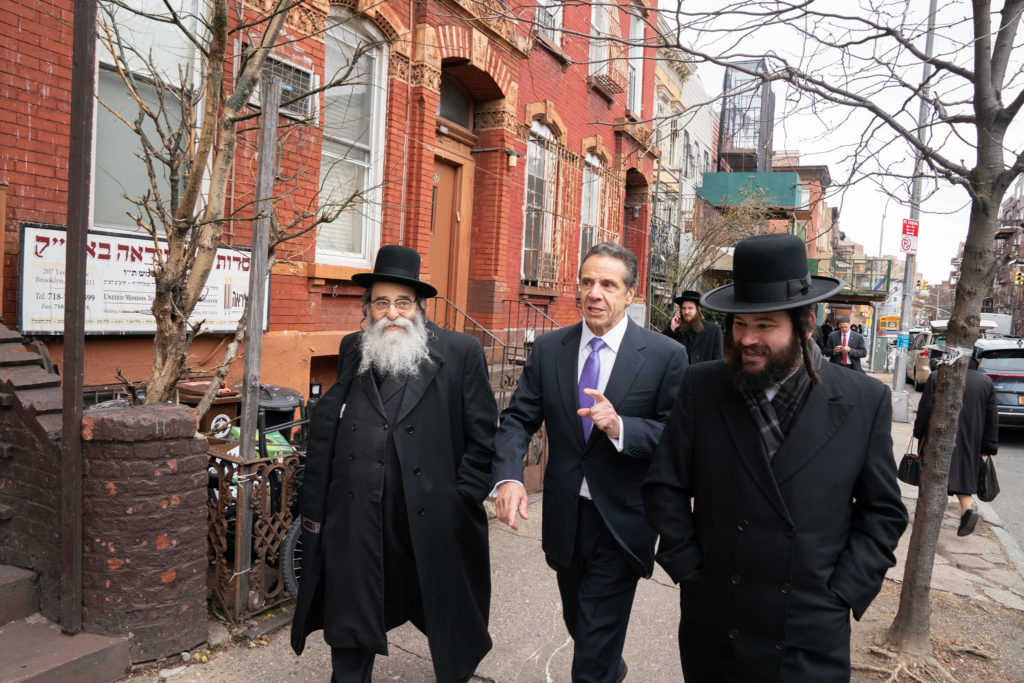From the federal to the local, how New York is fighting anti-Semitism

Amid a spike in attacks on Jewish New Yorkers citywide, lawmakers at every level are pledging to take action.
Days after the mayor promised to beef up police patrol in Brooklyn’s Jewish communities, Gov. Andrew Cuomo spent New Year’s Day in Williamsburg, where he swore to boost the number of state police in all Orthodox communities across New York. The city’s congressional caucus is increasing funds to related nonprofits and houses of worship, the City Council is asking for more transparency from police, and the borough president wants to break bread with Brooklynites of different backgrounds.
While meeting with Rabbi David Niederman, the executive director of the United Jewish Organizations of Williamsburg and North Brooklyn, the governor also doubled down on a promise to intro a new domestic terrorism law at the start of the new legislative session next week.

Brooklyn Boro
View MoreNew York City’s most populous borough, Brooklyn, is home to nearly 2.6 million residents. If Brooklyn were an independent city it would be the fourth largest city in the United States. While Brooklyn has become the epitome of ‘cool and hip’ in recent years, for those that were born here, raised families here and improved communities over the years, Brooklyn has never been ‘uncool’.